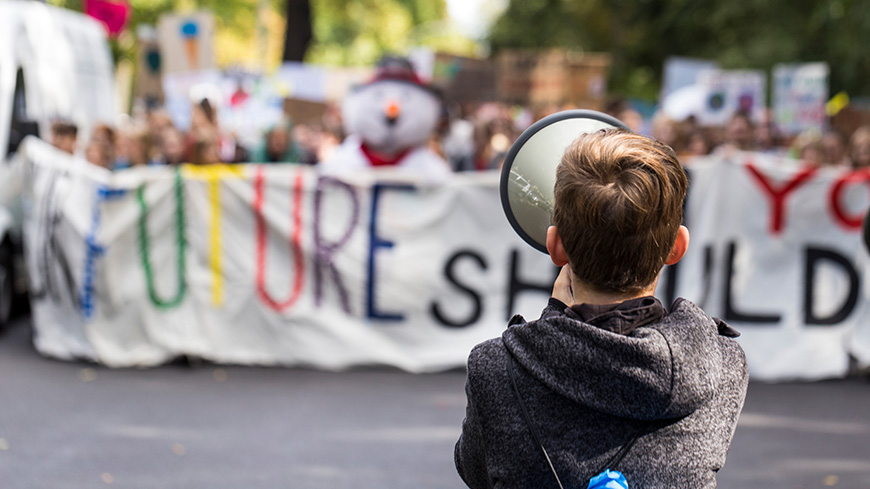Child human rights defenders want governments to start listening to their opinions, ideas, and proposals in the development of laws and policies. This is one of the main findings of a new report: “Children as defenders of human rights: a study on Council of Europe member states” published today.
This is the first ever study of national challenges and responses regarding the recognition, protection and empowerment of children acting as “child human rights defenders” in Council of Europe member states. It is based on the responses to a survey received from 20 (*) out of 46 Council of Europe member states, as well as consultations with 85 children across Europe, supplemented by desk research.
Children acting as human rights defenders need to have access to mechanisms which protect them from harm (violence, reprisals, punishment, intimidations offline and online) which may result from their actions, the study says. While many children appreciate school systems for providing help and advice against such intimidation, some of them would be worried to seek help there. Besides, while children are aware that they can turn to the police or go to the courts, they hesitate to do so.
The research reveals that most of the respondent states lack a specific regulation on human rights defenders, as they consider that their legislation on children’s rights and child protection also covers child human rights defenders. However, general children’s rights legislation usually neither includes the term “child human rights defenders” nor covers the full spectrum of the rights that these children are entitled to, such as the right to access to information, freedom of association and freedom of assembly. Moreover, the majority of member states have legal provisions which limit children’s right to participate, particularly for younger children. Although the right to children’s participation is widely referred in national legislation, its implementation remains a major challenge and the participation of children in political and public affairs and decision making does not happen in a systematic and meaningful way.
Children who participated in the consultation saw the possibility to get involved in law- and policymaking as a huge achievement but said that they were excluded from important decisions related to “adult things” or not taken seriously because of their age. Regarding the support they would need from their governments, children would firstly expect their governments to change their approach towards them, start listening to them and take into account their opinion when making decisions. Children would like to see more awareness raising about their rights and more opportunities to learn about how to defend their rights at school. Financial support provided directly to children human rights defenders would enhance their activities. The study demonstrates that most of Council of Europe member states (84%) would benefit from and welcome technical assistance to strengthen the legal framework and systematise implementation measures to advance the rights of child human rights defenders in their countries.
The study contains a number of recommendations to support member states in discharging their obligations towards child human rights defenders more effectively, such as integrating the term and concept in national legislation, engaging children into consultations and establishing national platforms for child participation, providing child-friendly information and protecting children from all forms of harm (including reprisals for their actions as rights defenders), and ensuring that any limitations on civil and political rights of these children are necessary, proportionate and non-discriminatory. Targeted training for parents/legal guardians, teachers and other key professionals should be provided, and the necessary resources to advance the rights of child human rights defenders allocated.
Approved by the Steering Committee for the Rights of the Child (CDENF) at its 8th Plenary meeting on 14-16 November 2023, the study is part of the follow-up work on the Reyjkavík Declaration adopted on 17th May 2023 by the Heads of State and Government of the Council of Europe member states, in which they committed to step up and strengthen the Council of Europe’s efforts “to create an enabling environment for human rights defenders”.
(*) Armenia, Austria, Belgium, Bosnia and Herzegovina, Bulgaria, Croatia, Cyprus, Czechia, France, Germany, Greece, Hungary, Iceland, Latvia, Luxembourg, Norway, Poland, Portugal, Romania and Switzerland.


